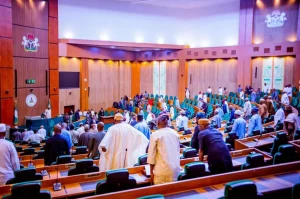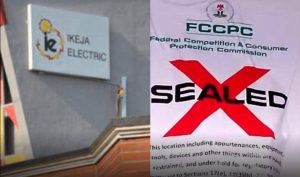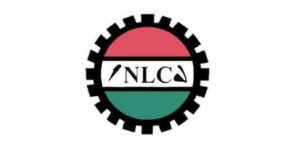By Damilare Adeleye
Since the removal of petrol subsidy, the federal government has headlined Compressed Natural Gas (CNG) as alternative to the premium motor spirit (PMS).

The increasing hike of petrol pump price has also forced vehicle owners to consider CNG as a viable option to save them from the petrol high costs.
Understandably, while CNG is sold at N230 per litre across the country, petrol currently sells between N900—N1,200 per litre, depending on the location within the country.
On August 18, 2023, President Bola Tinubu-led federal government unveiled the Presidential Compressed Natural Gas Initiative (PCNGI) to help Nigerians embrace and make switch to CNG.
According to a statement issued by the then special Adviser to the President on Media and Publicity, Ajuri Ngelale, the initiative was poised to revolutionise the transportation landscape in the country, targeting over 11,500 new Compressed Natural Gas (CNG)-enabled vehicles and 55,000 CNG conversion kits for existing Premium Motor Spirit (PMS)-dependent vehicles.
However, many Nigerians have expressed scepticism over the safety in the adoption and conversion of petrol-powered vehicles to CNG—enabled.
The recent explosion of CNG-powered vehicle last Wednesday at NIPCO filling station located at Aduwawa along the Benin-Auchi Expressway in Benin City, Edo State capital, has aggravated the safety concerns expressed by some citizens.
It was learnt that no fewer than three persons including a motorist were hospitalised after sustaining various degrees of injuries in the incident.
Nigerians subsequently expressed mixed reactions over the explosion.
Reacting, Olusola David Okunlola, blamed the government for hasty implementation of CNG without consideration to local peculiarities.
He said, “Nigeria government likes to experiment with peoples’ lives without adequate infrastructure and planning. They hurriedly and prematurely copy innovations from the western world without the will for understudying and fashioning out how best it can fit into our environment with our peculiarity in terms of weather, topography and other conditions.”
Also, a legal expert, Christopher Atsem Yange, called for strict compliance to the regulations on the sale, installation, and inspection of CNG systems.
He said, “The explosion of CNG (Compressed Natural Gas) vehicles in Edo State raises critical concerns regarding the safety and oversight of Nigeria’s ongoing CNG conversion initiatives. While the Nigerian government has pushed for the adoption of CNG to reduce reliance on petrol and promote a cleaner environment, several issues have emerged.
“From a legal standpoint, there are implications regarding liability and regulatory compliance. If explosions result from improper installations, both the service providers and regulatory authorities could face legal scrutiny for failing to ensure safe practices. Furthermore, as CNG adoption grows, it is vital to strengthen regulations on the sale, installation, and inspection of CNG systems to prevent future incidents.”
Speaking via his social media platform, Victor Okeworo, who rejected the CNG conversion, said it may not be applicable to all vehicles.
He said, “Nigeria has entered big one chance! CNG-powered car explodes.You see this CNG of a thing, any car I bought with my money would never go under the knives just to have it.
“Unless it’s factory fitted or what a layman calls ‘follow-come,’ count me out. It’s just so unfortunate that the hike in fuel pump price has left Nigerians sprawling away from the scorching heat of the economic sun, in search of any slightest shade. However, some Nigerians would never listen. Why would you want to convert a vehicle you’ve driven for 20 years to CNG? The same Vehicle that has become a symbol of shame and ridicules?”
“There’s no way a rickety vehicle is going to be compatible with CNG. Oga, when they said drivers should convert their vehicles to CNG, they weren’t referring to you. By the way, I would never sacrifice my trunk space on the altar of CNG conversion.”
In his opinion article titled, ‘The ‘kaboom’ discussion’, Tahir Ibrahim Tahir Talban, attributed to the explosion to human factor.
He said, “The human factor or in this case the Nigerian factor however, is where our fears should be, regarding the whole CNG conversion discussion. Conversion centres are designated and certified by government. There is no short cut in this matter. If you get your vehicle converted at ‘mudashiru’s car joint’, it is quite likely that your car will go kaboom! There are safety measures, standards and quality guard rails that are taken care of appropriately in these certified centres. You risk losing all that, including your life and your vehicle, if you take chances. People may cut corners thinking they are getting their conversions for cheap. There is no cheap way to do it successfully. It is not like a tokunbo tyre or a China spare part that can last you a while. And to check the economics of it, certified centres in collaboration with government, are offering a ‘convert now pay later’ option. Commercial vehicles are being offered free conversions too.”
Tahir Talban added that, “The missing link in the chain is availability. Government needs to ramp up on the availability of these conversion centres, as well as CNG filling stations. The greater the visibility of these centres and stations, the better the campaign and success of this alternate source of energy for vehicles that is a whole lot cheaper. 1 kg of CNG is equal to 1 and a half litres of petrol. 1 kg of CNG costs 230 naira which is equivalent to 1500 naira of petrol. If you fill your tank with 60,000 naira, you would be spending 10,000 naira or less for the same weight of CNG. You can also use CNG to power your generator. Of course it has to be built to utilise CNG as fuel, or converted using specialised knowledge and equipment.”
Similarly, the Presidential CNG Initiative (PCNGI) said an investigation revealed that the cylinder in the vehicle was improperly welded and not approved for CNG use.
In a statement issued Thursday, PCNGI said the police and regulatory authorities are conducting a thorough inquiry into the incident, adding that it is collaborating with them.
“This incident underscores the importance of the upcoming Nigeria Gas Vehicle Monitoring System, which aims to enhance safety in the CNG ecosystem.
“We urge all stakeholders to support this regulatory initiative and ensure compliance. Only accredited conversion centres should be used, and safe handling of CNG, like petrol, is essential for everyone’s safety,” the statement read.
Sparklight News understands that CNG is generally safe, reliable, conducive and affordable as alternative automotive fuel.
However, conversion may not be suitable for all vehicles. While most petrol-powered vehicles can make the switch, not all engines are ideal for CNG, this newspaper learnt.
Also, vehicles under 10 years old with modern systems are considered as best suited for CNG, while high-powered or turbocharged engines might not be compatible.
Petrol-powered cars can be fully converted to run on CNG by adding a few key parts, like a storage cylinder, a pressure regulator, a CNG tank, and a heating system.Diesel engines, on the other hand, can partially switch to CNG, meaning they’ll run on a 50/50 mix of diesel and CNG rather than purely on CNG.
Before converting, it’s pertinent to have a certified mechanic inspect the vehicle to ensure it’s up to the demands of CNG.

























